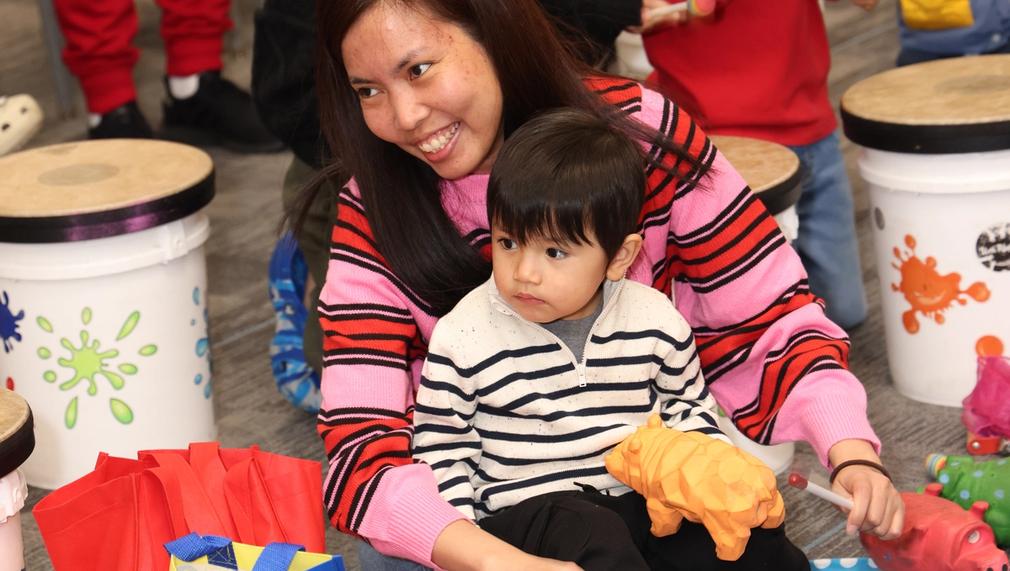Mitigating Trauma in Fostering Families
Young children in the foster care system have experienced trauma (the very act of entering the system imposes trauma), which can result in their exhibiting challenging behaviors to which caregivers may respond inappropriately – imposing even more trauma rather than helping the child overcome existing pain. Unfortunately, most foster parents are not trained to support a trauma-impacted child. Trauma Informed Care (TIC) training is an essential step in increasing our communities’ resiliency with respect to trauma and lessening its impacts.

What is the primary issue area that your application will impact?
Support for foster and systems-impacted youth
In what stage of innovation is this project, program, or initiative?
Expand existing project, program, or initiative (expanding and continuing ongoing, successful work)
What is your understanding of the issue that you are seeking to address?
Trauma can cause significant and long-lasting mental health problems in young children, including brain impairments and problems forming attachments. These children develop unhealthy behaviors and habits, display aggression and disobey adults. LA County has 30,000 children in foster care – 30% under 5 – who have experienced terrible trauma: often abuse and neglect, but at least separation from their birth family. Foster parents often misjudge the child’s negative behavior, addressing it with efforts that are ineffectual and damaging or inflicting even more trauma: most children in foster care more than 24 months experience 3 or more disrupted placements. This leads to a staggering achievement gap between foster youth and their peers, with foster youth trailing in standardized test performance, high school graduation (in California, only 53% of foster youth graduate high school on time vs 83% of youth in general), and postsecondary education (only 3% of foster youth graduate college).
Describe the project, program, or initiative this grant will support to address the issue.
We are experts at providing TIC training and support to child care providers – now we want to expand to caregivers of young foster children who, unlike older children, cannot express their feelings in words. Young children suffering from trauma generally have difficulty regulating behaviors and emotions, which may make them clingy, fearful of new situations, easily frightened, difficult to console, and/or aggressive and impulsive. They may have difficulty sleeping, lose developmental skills, show regression in functioning and behavior. It is vital that foster parents recognize these as symptoms of trauma and react with therapeutic procedures – and we must teach them how to do this. We propose a-3-pronged approach: trauma trainings, 1:1 consultations, and group programming. We would offer 2-4 workshop/seminars per month (in English and Spanish) to introduce TIC and offer concrete strategies to soothe a child exhibiting difficult behaviors and promote regulation and executive functioning, to implement routines and smooth transitions, and to reduce caregiver stress. The 1:1 consultations (15-30 per month, 30-60 mins each) would address the inevitable individual issues. And the group programming, part of our ongoing Family Engagement Initiative (4 events per month), would offer additional opportunities to build skills and discover tools to support their family’s resiliency, expand the social emotional development of children, and enhance the social connectedness of parents.
Describe how Los Angeles County will be different if your work is successful.
In the short term, this project will train 500 foster parents to help the approximately 800 young children in their care begin to recover from traumatic experiences – and help prevent the additional trauma of disrupted placements. In the long term, this early intervention will help transform children’s outcomes for life. We do mean “transform.” Right now, we are failing our foster youth. More than half of the older teens will age out of foster care without being reunited or connected to a family. They will experience disproportionately high rates of homelessness (11%-38%) and commit more crimes (90% of youth with 5 or more placements become involved in the criminal justice system). And then they will start again with their own children (7 out of 10 girls who age out of the foster care system will become pregnant before the age of 21). It is time to break this cycle. We owe it to them, and we owe it to LA.
What evidence do you have that this project, program, or initiative is or will be successful, and how will you define and measure success?
Studies have demonstrated the transformative impact of a nurturing environment and high-quality early education on everything from school readiness, IQs, teen pregnancy rates, arrests, high school graduation rates, job retention. High quality parenting – responding calmly, understanding children’s emotional perspectives – has an important role to play in this. We have already created TIC training for caregivers generally, and our post-training surveys have confirmed that the TIC training we provided taught them how to deliver that kind of high-quality parenting, how to respond with positive interactions rather than reprimands to challenging behavior in their children (since reprimands can cause a child to shut down while positive interactions can help build resilience in children, rewiring the areas of their brains that have been impacted by trauma). We will similarly confirm this impact with our foster parents.
Approximately how many people will be impacted by this project, program, or initiative?
Direct Impact: 500.0
Indirect Impact: 800.0